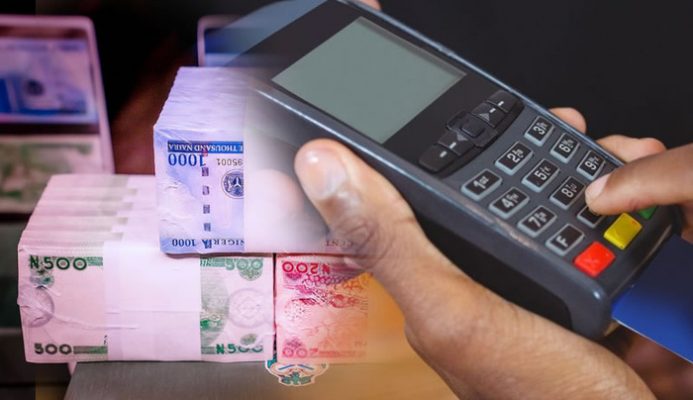Physical Address
60 Ekwema Cres, Layout 460281, Imo
Physical Address
60 Ekwema Cres, Layout 460281, Imo

Starting April 1, 2026, Nigeria’s Central Bank will restrict POS agents to work with only one principal. This new rule was announced on Monday, October 6, 2025, and it means that POS agents can no longer work with many companies at the same time. The CBN also said that while this rule starts next year, all the other parts of the new guidelines are already in effect.
Nigeria’s Central Bank will restrict POS agents to work with only one principal to help make financial services safer and easier to access, especially for people living in areas that don’t have banks nearby. The new rules bring together all the past guidelines into one clear set of instructions, making things less confusing for everyone.
Read Next: Luno Enables South African Users to Spend Crypto at Major Retail Stores
Even with the new rule coming, POS agents will still do what they have always done. They will help customers take out and put in money, transfer money in naira, and pay bills. They might also help people fill out forms to open bank accounts and send those forms to their principal companies.

A big change is about super agents. These are the companies that find and manage other POS agents. Nigeria’s Central Bank will restrict POS agents to work with only one principal, and super agents are no longer allowed to give banking services directly to customers. Now, super agents will only manage agents and not serve customers themselves. Also, the companies that own the banking services (the principals) will decide what services their agents can give, based on rules for safety and risk.
The rule that Nigeria’s Central Bank will restrict POS agents to work with only one principal is not just for single agents but also for whole networks of agents managed by super agents. This means an agent can only belong to one super agent at a time. But super agents can still work with different principals.
The CBN also added tougher rules about who can be an agent and how they must work. To become an agent, a person or business must have no bad loans in the last 12 months. They must not be bankrupt, must have a clear criminal record, and their Bank Verification Number (BVN) must not be blacklisted.
Agents also have to work from a proper place, not just anywhere. This place must be at least a kiosk or a shop. For businesses like petrol stations, restaurants, or shops that act as agents, they must only provide services at their official business locations.
To keep things fair, principals cannot choose or promote only one brand of card. They must offer the same prices and rewards to all customers and agents, no matter which card they use. Also, agent banking activities must be separate from normal sales, and agents must use a special agent code, 6010, for their banking work.
Read Next: Gabonese Logistics Startup POZI Secured €650,000 in Its First International Venture Funding Round
Another change is the formal introduction of Payment Terminal Service Aggregators, or PTSAs. These are new groups in charge of registering POS machines, tracking where these machines are used, and making sure agents are using them properly. This will help stop fraud and keep the system honest.
Nigeria’s Central Bank will restrict POS agents to work with only one principal starting April 2026. This will help make the agent banking system more organized and fair. With stricter rules about who can be agents, where they work, and fair treatment of card brands, the CBN hopes more people will trust and use agent banking, especially in places far from banks. The new rules will also help manage super agents and more closely watch POS terminals through the new payment terminal service aggregators. This is part of Nigeria’s effort to make financial services better and more available to everyone.
Was this information useful? Drop a nice comment below. You can also check out other useful contents by following us on X/Twitter @siliconafritech, Instagram @Siliconafricatech, or Facebook @SiliconAfrica.